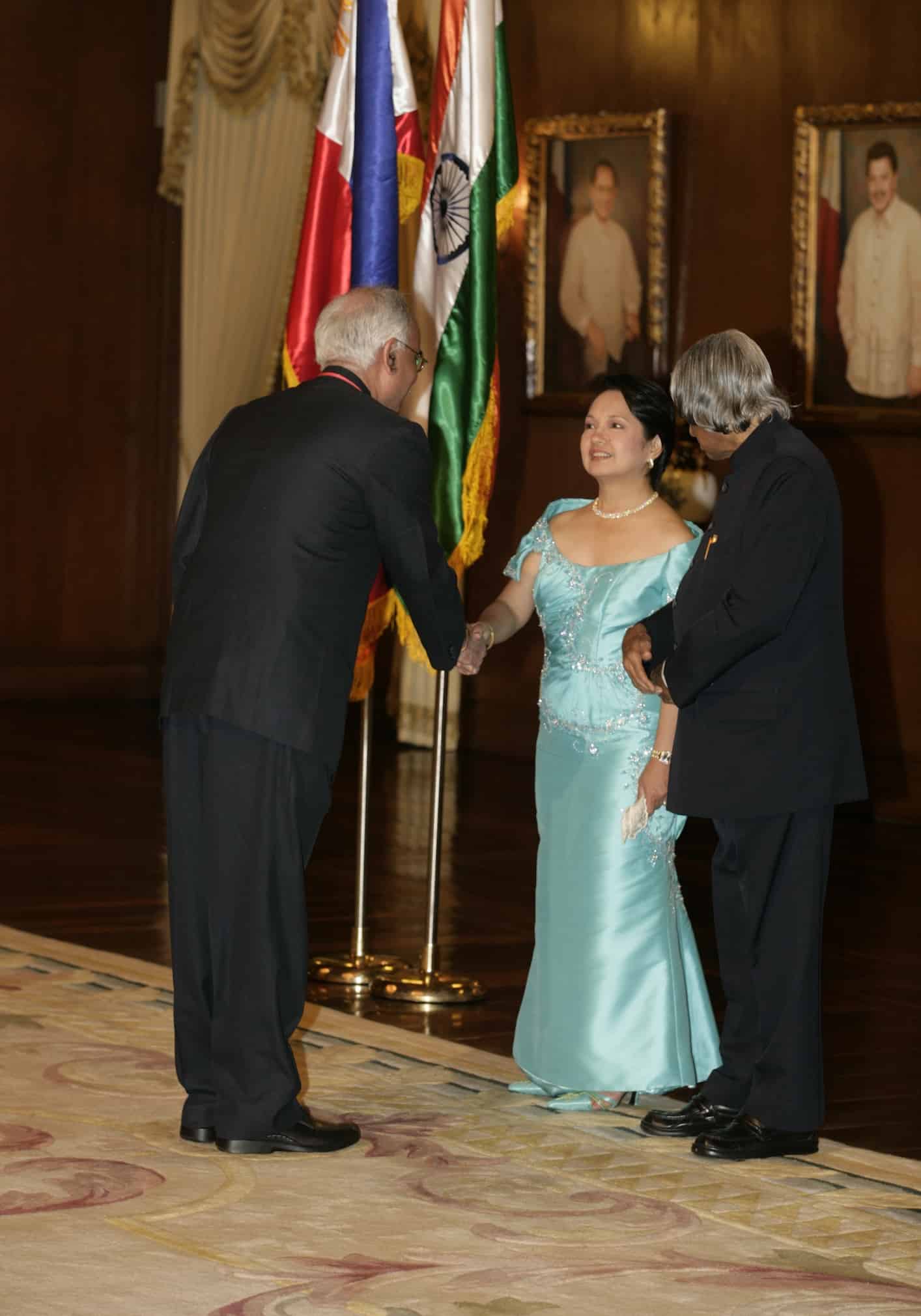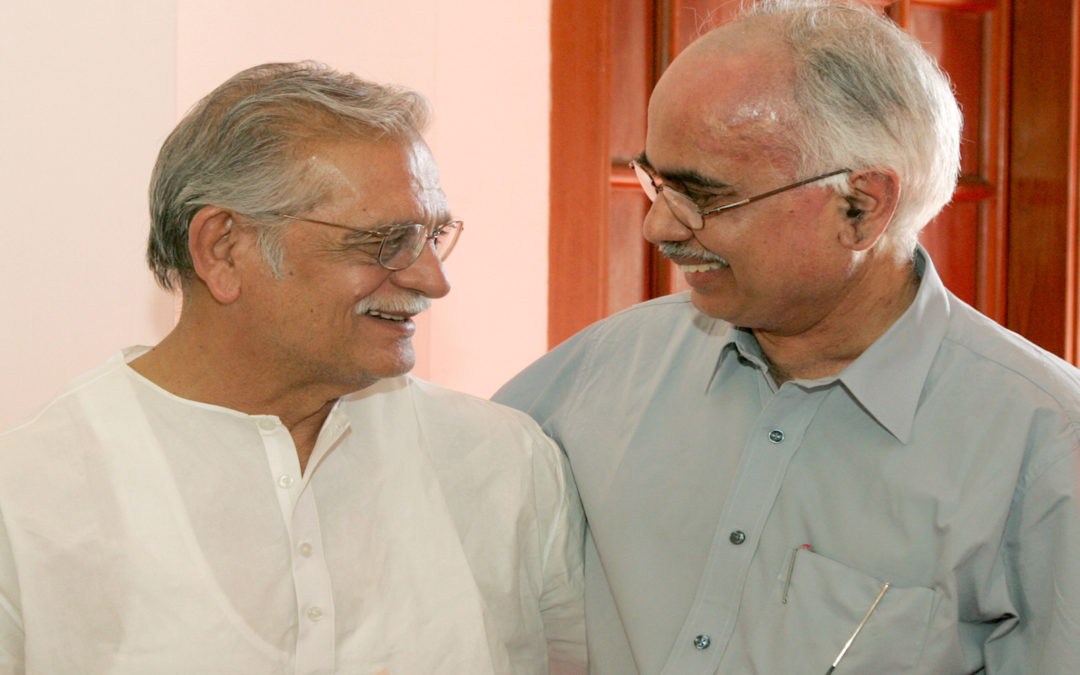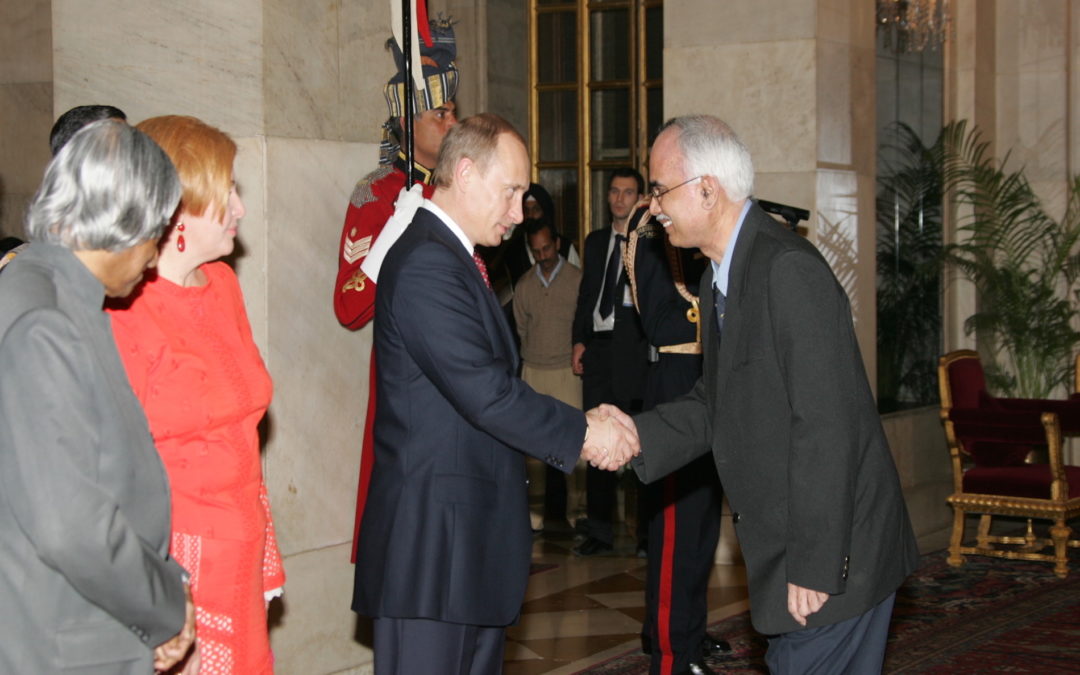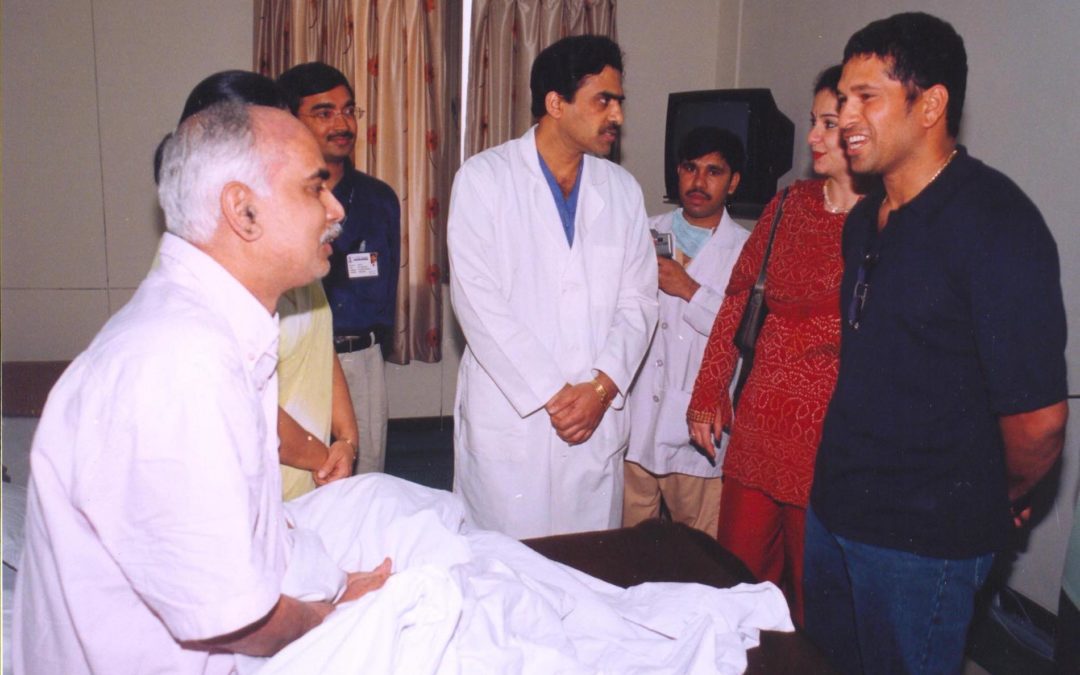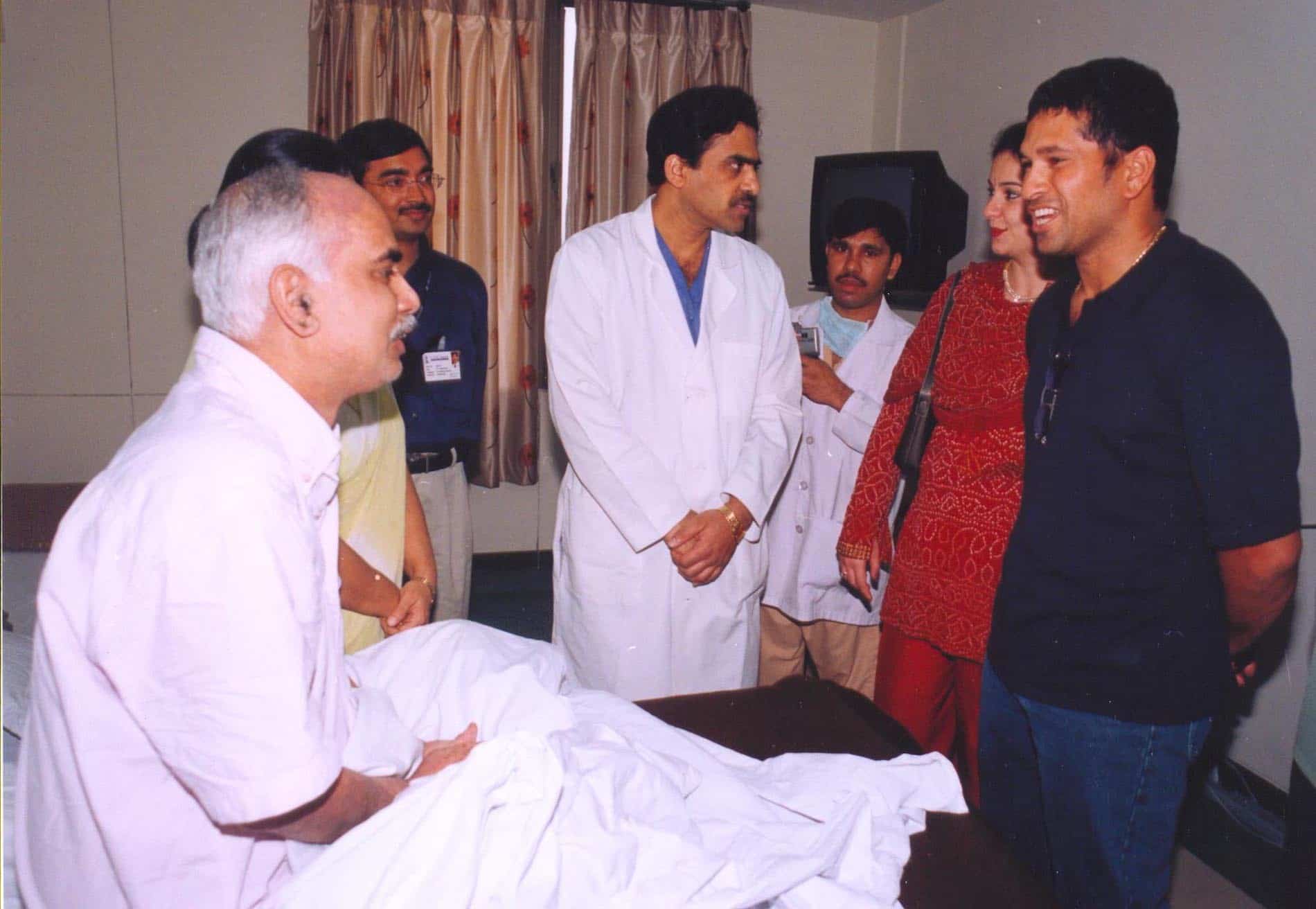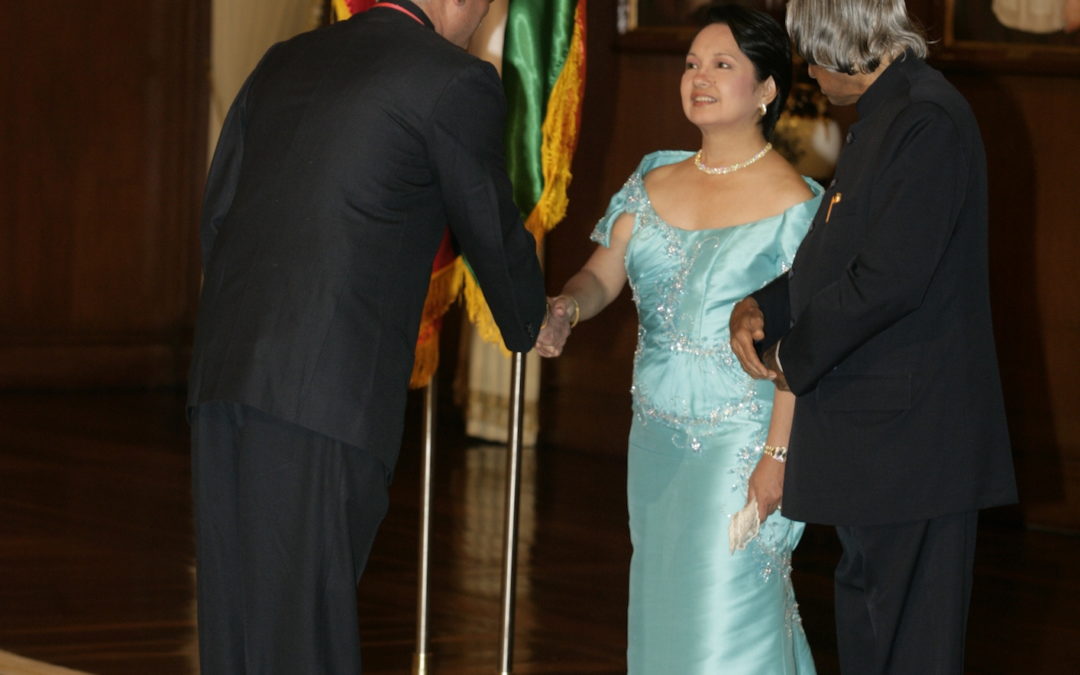
February 04, 2006
February 04, 2006
The president of the Philippines hosted a banquet in
From Siachen to ceremonies of state, Dr. Kalam was comfortable in almost any given situation, but I can never forget his blushing face and shyness in President Arroyo’s presence. For all of his life, Dr. Kalam had been used to demurely attired Indian ladies. He had only ever encountered women from other lands in sober, formal settings. President Arroyo, though, was simply dazzling in an aquamarine, off-shoulder brocade gown with a diamond necklace adorning her décolletage. Her glamorous demeanor was quite a cultural shock for Dr. Kalam. His usual calm aplomb deserted him, and he bashfully stood next to President Arroyo at the banquet, meeting guests.

